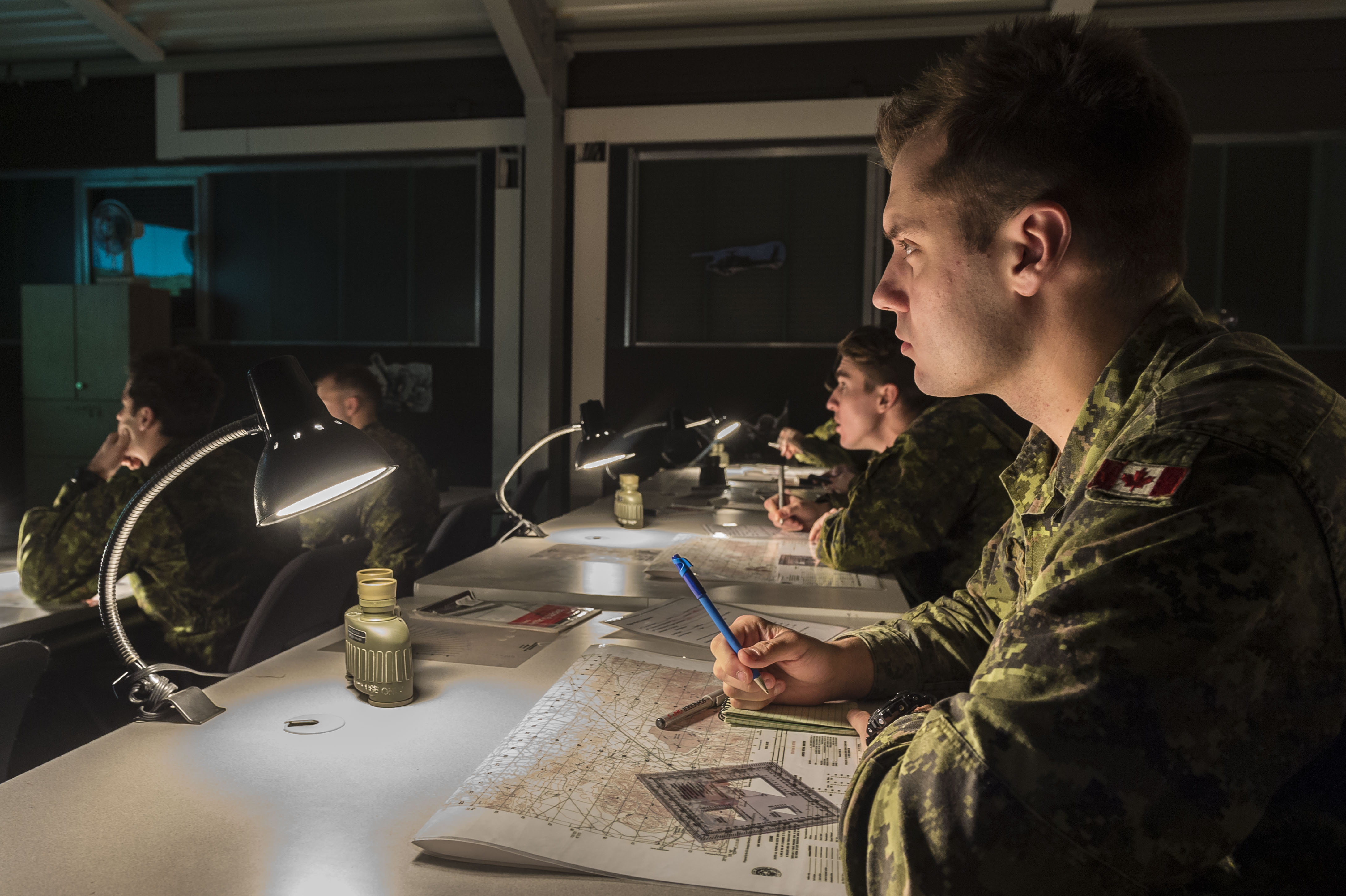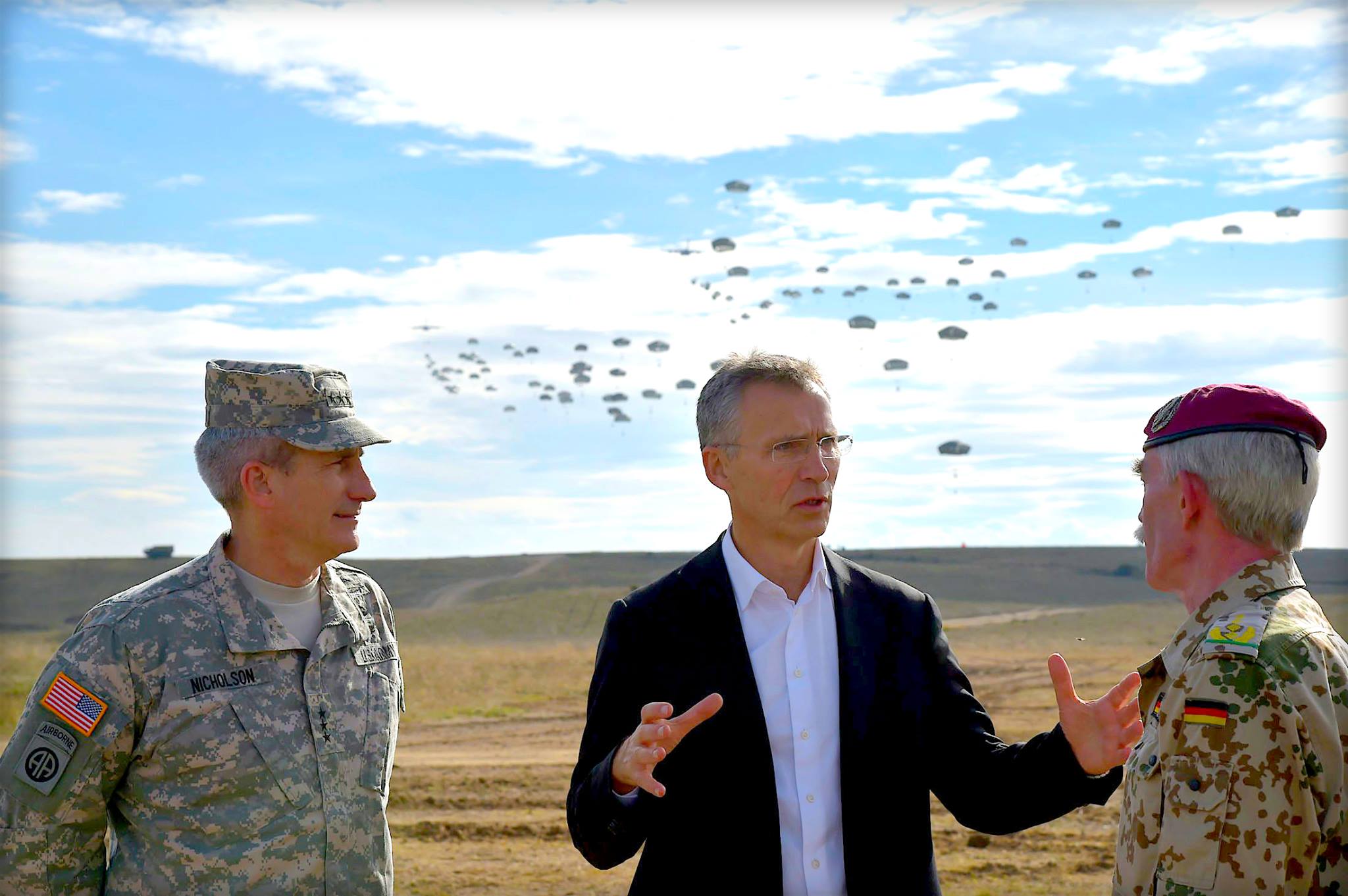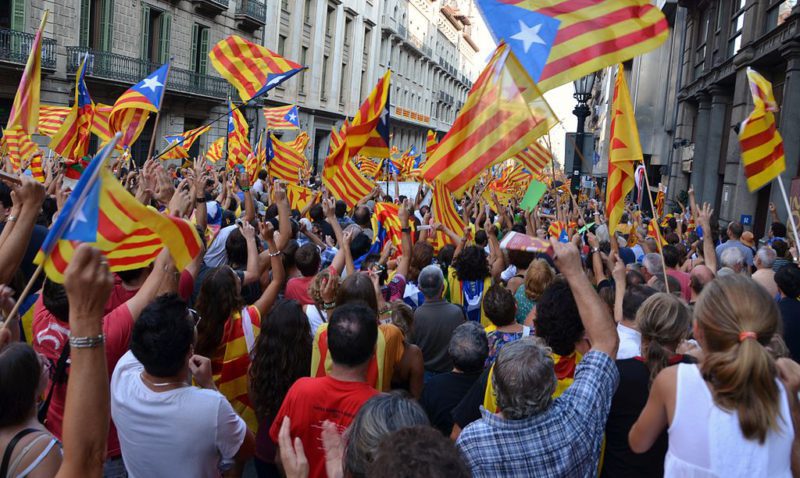Today’s inauguration of Donald Trump as the 45th President of the United States marks the official start to the business mogul’s venture into politics. The somewhat ominous prospects of Trump’s leadership have other states, Canada included, wondering what’s in store once the Republicans take the White House. We asked the Program Editors here at the NATO Association to give us their take on what’s in store for Canada and the Trump Presidency. Here’s what they had to say:
Alexis Amini – Program Editor, Canadian Armed Forces
Although Canada’s defense spending only makes 0.9% of GDP instead of NATO’s 2% requirement, Ottawa doesn’t face the risk of abandonment from the US despite Trump’s statements regarding “free riders” within the Atlantic Alliance. Given its geographic position as the US’ northern neighbour in North America, Canada will always benefit from US military protection despite its limited defense budget. Indeed, to fully guarantee the US mainland’s security, Washington must ensure that the land, maritime and aerial approaches toward the mainland US are off-limits to any potential threat emanating outside North America. From a cost/benefit analytical standpoint, it’s better to counter a threat as far away from our borders as possible than to wait for it to shows up on our doorstep. As such, even if Canada doesn’t increase its defense expenditure to 2% of GDP, as per the NORAD treaty, the US will be ready to deploy military assets in securing Canada’s maritime and aerial approaches if a specific extra-regional threat grows to the point that current Canadian capabilities are insufficient in repelling it. That said, by refusing to invest more in its military, the central question is whether Canada is willing to cede the task of securing its borders to the US.
Marietta Armanyous – Program Editor, Emerging Security
Donald Trump’s incoming presidency is definitely a threat looming on the horizon, not for any particular reason, but essentially because we do not know what to expect. While Trump’s rhetoric has created anxiety among Canadians, with his criticism of NATO and NAFTA, he may prove to be all talk, and no walk. I would be more interested in hearing from his newly appointed Secretary of State and Secretary of the Treasury and their personal thoughts on these international organizations. Essentially, I see Trump as the energetic team mascot while his cabinet will be the team that actually makes the critical plays. Whether they’ll win the game is still up in the air, although according to Trump, they will definitely be “winning”!
Mark Jarratt – Program Editor, Canada’s NATO
With the Trump presidency looming on the horizon, I think there will be significant changes regarding our relations with the United States. I believe that there will be a clash of ideologies between Trudeau’s Liberal agenda and Trump’s Conservative views when it comes to social issues, economy, and perhaps politically. This was very clear when Trudeau shuffled around six members of cabinet in the lead-up to the inauguration of Trump. In regards to Trump’s statements regarding NAFTA I think that Canada may have to look elsewhere for trade despite the US and Canada being each other’s largest trading partners. Canada has already made a free trade agreement with the EU in fall of 2016, and Trudeau’s making a few state visits over to China shows that relations to the East may be strengthening.
Phil Rafalko – Program Editor, International Business and Economy
One of the biggest themes of the entire 2016 Presidential Race was Trump’s seemingly erratic and unpredictable behaviour. He does not play into traditional understandings of how politicians think, speak, and act, but he does have his own rhythm. Trump is a black hole for attention. The same media he has been bashing he can’t live without because they feed him attention. Right now, whether they support him or hate him, Canadians are buying into the Trump craze. We’re paying more attention to him than to our own Prime Minister Trudeau (though this is not unusual for Canadians interested in US politics). Considering Canadian deference to US presence on the global stage, it would not be surprising if the new US administration tried to make some major changes to our long-standing relationship.
Bianca Hossain – Program Editor, Society, Culture, and International Relations
I think Canada will begin to see a drastic split between Canadian culture and American culture. Canada’s always been considered a “little brother” or a shadow of America. Especially over the last year, we’ve seen how amicable Obama and Trudeau are towards each other as both leaders share identical values. We have a Prime Minister who openly calls himself a feminist and who immediately propelled the National Inquiry for Missing and Murdered Aboriginal Women and Girls. We’re working on progress. Yet, with the Republicans dominating the incoming US administration, we have already seen a call for the repeal of Obamacare and defunding for Planned Parenthood, both fundamental institutions for large groups of Americans. If this is the direction the Republicans are going in, it’s opposite to us. In upcoming years, this may actually give Canada an opportunity to overshadow the States as a role model for a progressive and supportive culture.
Farah Bogani – Program Editor, NATO’s Arc of Crisis
Having a new president just across the border who has run a campaign based on virulent racism, sexism, xenophobia, Islamophobia, and homophobia, is concerning to say the least. His assumption of power gives power to those messages embedded throughout the campaign and emboldens those who share similar sentiments. It makes me wonder the extent to which that rhetoric will spill over into Canada itself. While Canada has always portrayed itself as a tolerant and multicultural state, the reality, as we have seen in our neighbor, is that hate can be found anywhere. Since the election, Canada has seen its own share of rise in hate crimes: a swastika and ‘KKK’ have been spray-painted on the walls of an elementary school in Ottawa, a synagogue in Ottawa has fallen victim to anti-Semitic graffiti, in Montreal people have been reported marching with Quebec flags declaring ‘Terroristes à mort, Islam dehors’ (Death to terrorists, Islam out!), anti-Chinese flyers have been making their rounds in Vancouver, and ‘alt-right’ posters have been seen in Toronto calling for fellow white supremacists to join the cause. While Canadian laws are more stringent to limit hate speech, hate crimes are not new in Canada. To see a sudden growth in the post-US election atmosphere is alarming and a reminder of the need for Canadians to continue to foster an environment of openness and diversity.
Alexander Sawicki – Program Editor, Procurement
The fact of the matter is this: Canada is economically dependent on the United States for its well-being. An often-overlooked fact is that the US accepts about 80% of Canada’s exports, and provides about 70% of imports. Meanwhile, Canada accounts for about 20% (more or less) of all US imports and exports. Thus, the onus of responsibility for who is supposed to get along with whom falls squarely on the shoulders of the Canadian Government. In other words, the United States has leverage, and they will use it to apply pressure, of that you can be sure. The changes will not be great, but they will be present. No, there will be no invasion. And no, Canada is not going to suddenly receive an influx of celebrity refugees from the south. However, what we will receive are a number of “polite suggestions” to reform (read: tighten up) our immigration policies, the proposed legalization of marijuana, and the per cent of our GDP which we spend on defence
Erin Loney – Program Editor, Expanding Community
Donald Trump’s win has been celebrated and congratulated by far right politicians in Europe, including France’s Marine Le Pen, Austria’s Norbert Hofer, and the U.K.’s Nigel Farage. It will be interesting to see how Trump’s politics influence a Canadian far right movement. Close economic and geographic ties with our Southern neighbour have long impacted Canadian trends and values. Trump’s win may give confidence to those who have previously supported far right politics from the shadows. Kellie Leitch, a candidate for leader of the Canadian Conservative Party, has come forward expressing her support for Donald Trump and advocating the adoption of some of his values and policies on immigration in Canada. There are clear widespread movements towards closing borders, nationalism and xenophobia in many of the world’s leading countries. Is Canada next?
Isabel Zucchero – Research Analyst
Trump’s presidency will without doubt have an impact on Canada in both the short and long term. The above concerns articulated by my colleagues are all highly relevant, and more important than ever to consider now that President Trump is in charge of our neighbors to the south. I think it will be especially interesting to see what unfolds in terms of a personal relationship between Prime Minister Trudeau and President Trump following the Obama administration. Although Trudeau has stated this week that he intends to work together with Mr. Trump to have a smooth transition and build a good relationship, it is difficult to imagine these words as any more than a formality. The North American partnership developed significantly over the course of Obama and Trudeau’s overlapping time in offices, with friendly relations between the two leaders often setting the tone for equally friendly relations between the two states in general. Aside from few minor divergences on specific issues of policy preferences, Obama and Trudeau set a standard for inter-state relations that will be hard to beat. Especially given their polar opposite views on more than a few critical issues involving both state powers, it’s difficult to see any close relationship between Trump and Trudeau in store. Watching Obama’s farewell speech also gave me a renewed sense of concern for Obama’s legacy in American politics. With many of Obama’s contributions to policy now in jeopardy with the Republicans promising to take a baseball bat to many of Obama’s most well-known political moves (look no further than Obamacare), it’s unfortunate to think that so much of what Obama achieved in his two terms could be quickly undone by his successor.
Photo: The Canada-US Border. Source: Flickr. Licensed under CC 2.0
Disclaimer: Any views or opinions expressed in articles are solely those of the authors and do not necessarily represent the views of the NATO Association of Canada.




